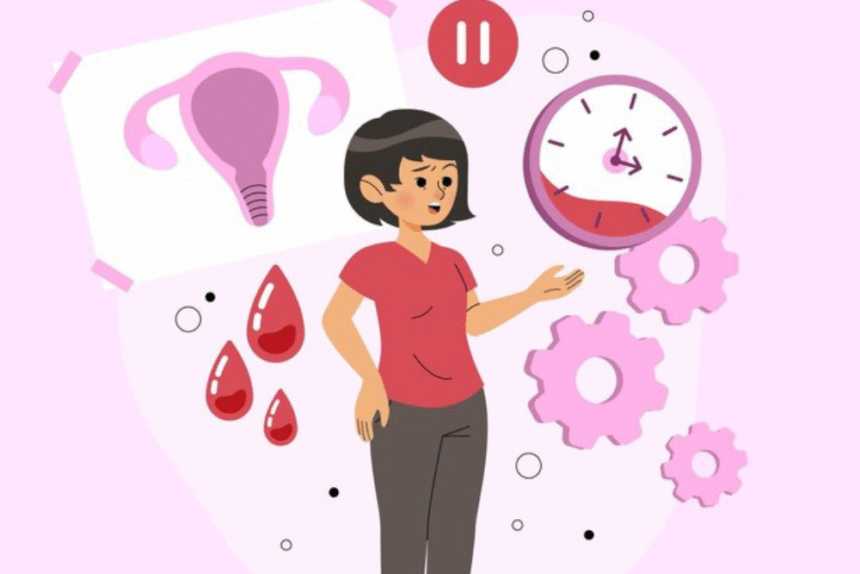Gynecology plays a fundamental role in women’s healthcare, from reproductive health to managing hormonal challenges. Hormonal imbalances are disruptions in the body’s natural hormone levels and can affect overall health. Gynecologists specialize in diagnosing and treating these imbalances, offering tailored solutions for improved health. Here is information on common causes of hormone imbalance, and the role gynecology plays in diagnosis and treatment:
What Causes Hormone Imbalances in the Body?
Hormones regulate many of the body’s major functions, including metabolism, reproduction, mood, and sleep. Various factors can disrupt the natural balance. A gynecologist plays a key role in diagnosing and treating hormone imbalances.
In gynecology, these medical professionals are trained to address issues related to the endocrine system, particularly those affecting reproductive health. Through comprehensive evaluations, including medical history reviews, physical examinations, and specialized tests, gynecologists can identify underlying causes of hormone irregularities. Some common causes of hormonal imbalances include:
- Chronic Stress: May increase cortisol levels, often impacting other hormones.
- Medical Conditions: Such as diabetes or thyroid disorders may alter hormonal regulation.
- Lifestyle Factors: Poor diet, lack of exercise, and insufficient sleep commonly disrupts hormone production.
- Age-Related Changes: Such as puberty, pregnancy, and menopause, as these age stages naturally shift hormone levels.
How Do Gynecologists Diagnose Hormone Imbalances?
Gynecologists are highly trained in assessing hormonal issues. They adopt a holistic approach to both diagnosis and treatment. During a visit, your doctor will go over the following before making a diagnosis:
- Medical History Review: Gynecologists begin with an in-depth discussion of a patient’s symptoms, lifestyle, and any existing medical conditions.
- Physical Examination: They conduct pelvic exams and other physical evaluations to identify possible abnormalities.
- Laboratory Testing: Blood tests measure hormone levels, including estrogen, progesterone, thyroid hormones, and more, helping pinpoint irregularities. Imaging tests like ultrasounds may also be used.
Once diagnosed, they develop personalized treatment plans, which may include lifestyle modifications, hormone therapy, or medications, to restore balance and alleviate symptoms. By addressing these imbalances, gynecologists help improve physical health and contribute to better health outcomes.
What Conditions Influence Hormones?
Several medical conditions directly contribute to hormonal imbalances. Once the origin of the imbalance is identified, gynecologists offer specialized treatment. Personalized care plans may involve lifestyle changes, medications, and even surgical interventions. Some of these conditions include:
Thyroid Imbalance
The thyroid gland produces hormones that regulate primary functions, including metabolism and energy levels. An overactive thyroid (hyperthyroidism) or an underactive thyroid (hypothyroidism) leads to symptoms such as weight changes, fatigue, or hair thinning. Gynecologists may collaborate with endocrinologists to provide thyroid-focused care, offering treatment plans that integrate overall hormonal health.
PCOS
Polycystic ovary syndrome (PCOS) is a hormonal disorder where the ovaries produce excess androgens (male hormones). It causes cysts to form on the ovaries, leading to hormonal imbalances that can result in excessive hair growth, acne, or weight gain. This leads to irregular periods and even fertility challenges. Gynecologists manage PCOS with tailored solutions, including medication to regulate menstrual cycles, lifestyle interventions, and, in some cases, fertility-specific treatments.
Menopause
Menopause marks the end of a woman’s reproductive years and comes with fluctuating levels of estrogen and progesterone. This hormonal shift commonly causes hot flashes, mood swings, and sleep disturbances. Through hormone replacement therapy (HRT) or non-hormonal options, gynecologists help women manage menopause effectively.
Find Out How Gynecology Can Improve Your Healthcare
Hormonal imbalances can disrupt your life, but gynecology provides the path to balance. Through skilled diagnosis and personalized treatments, gynecologists address key conditions like thyroid imbalances, PCOS, and menopause. If you’re experiencing symptoms of a hormone imbalance, don’t hesitate. Schedule a consultation with a trusted gynecologist today.





